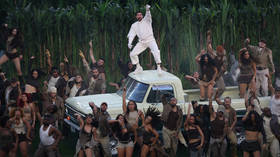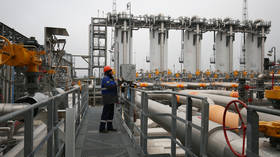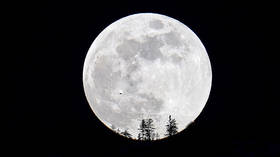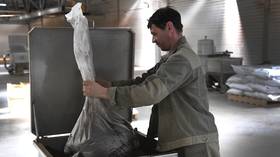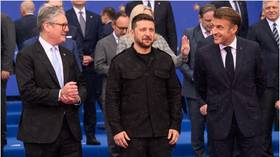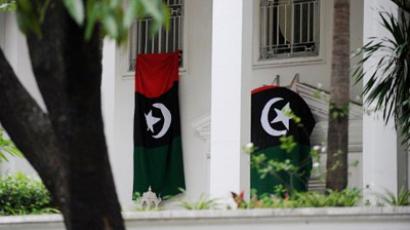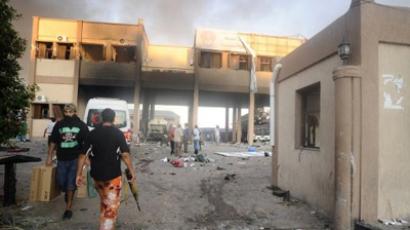‘Welcome to new Tripoli!’
Tripoli used to be one of the most beautiful cities on the African Mediterranean coast. Now, it looks neglected and dirty. Its citizens struggle for stability following the recent rebel takeover.
Graffiti all around the city proclaims “Welcome to NEW Tripoli.”With fighting still continuing in parts of the city between the rebels and Gaddafi’s forces, an army of another kind has taken to the streets. “We've been living in dirtiness for 42 years with Gaddafi. Now we are cleaning our city from it,” one of the street cleaners told RT.With police no longer on the ground, armed volunteers maintain order – something that ordinary residents are very concerned about. If there is a gun, they say, it will fire sooner or later. Anyway, weapons in the hands of nervous youngsters and non-professionals is not a good thing. Home to the biggest aqueduct in the world, Tripoli has been without running water for more than a week already. The new authorities claim it is due to technical problems, not because of the street fighting.Sami calls himself Libyan middle-class – neither rich nor poor. His family lives in a modest house in the center of Tripoli – but just like every resident, they are struggling. “It is very hard – we have to wash clothes like women were doing 50 years ago, with hands,” says Sami’s wife.But this battle is nothing comparing to what is behind them, Sami says. “We still have no electricity, no water. At least we have our freedom.”And this view seems to be shared by many here.As for Gaddafi – rebels claim he is hiding in the town of Bani Walid, some 100 kilometers from Tripoli, while his family members have fled Libya to neighboring Algeria with the intention of possibly moving further on so as to avoid being extradited back to Libya.Rebels also claim to have killed the Colonel's youngest son Khamis.Tripoli today may not be the best place to live – it is dangerous from both a humanitarian and security point of view. Shortages of water, food and medicine, people with guns everywhere, and no police. But the Libyan capital’s residents say they have been living without fresh air for 42 years of Gaddafi’s rule. Now they’ve finally got it, nothing else matters.
‘Africa is up for grabs.’
Columnist for “Foreign Policy in Focus” Conn Halliman says the NATO operation in Libya is an implementation of Bush-era plans to gain control over Africa.“The US for the past 60 years felt that if it is to have political or economic influence in a particular country or a region – it also has to have a military one. What people need to do is to see that this [Libya] is the first NATO operation in Africa and this goes back to the Bush administration which called for the creation of African Command – which called for not using troops but Air Force and Navy in case of invasion of an African country – all of this seems to have been done,” Conn Halliman reveals.
Human rights activist Matthew Lee claims the UN has already drafted a document that would ensure its future presence in Libya.“In some places this ten-page plan says things like, ‘we can do this without getting a new mandate from the UN Security Council, we can move peacekeepers from missions that already exist and put them in there, we can send military advisers’,” the founder of Inner City Press reveals.“There is one line where they just say it is not controversial at all. They say the Security Council’s protection of civilians mandate implemented by NATO does not end with the fall of the Gaddafi government and therefore NATO will continue to have some responsibilities,” Matthew Lee says.


